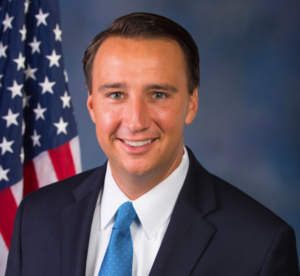As the Republican National Committee convenes this week in Miami for its annual winter meeting, it should build on the momentum from last week’s House GOP strategy session on climate. Republican leaders are starting to recognize that addressing climate change offers opportunity for political gain and economic growth.
Our home states – Florida and Pennsylvania – will be two of the most important in determining who wins the presidential election this fall, and attention to climate and clean energy issues can help the GOP.
Florida Republicans have called for meaningful action on climate change. In part, that’s because Floridians can see climate impacts unfolding before our eyes and threatening our economy. With more than 1,000 miles of tidal coastline, the state is at real risk from sea-level rise. A new report predicted Florida homes at risk of flooding stand to lose up to 15% of their current value in the next 10 years.

Climate change could pummel three key sectors of Florida’s economy: tourism, agriculture and real estate development. Coral reefs — crucial for protecting coastlines and coastal properties — are at risk of near-extinction due to warmer waters and ocean acidification.
Meanwhile, warmer, wetter weather has been linked to increased incidence of red tide and blue-green algae. In 2018, these harmful algae blooms cost seafood, restaurant, and tourism businesses in the hardest-hit counties almost $90 million.
In October 2018, Hurricane Michael was the first Category 5 hurricane on record to make landfall in Florida’s Panhandle. The toll was high: 16 deaths and $25 billion in damages, approximately $18.4 billion in Florida alone.
Pennsylvania is also seeing the impact of climate change. Our climate is getting measurably warmer and wetter, with more frequent and severe flooding and growing pest populations with corresponding increases in disease. Similar patterns are disrupting rural communities across the country. Flooding along the Missouri and Mississippi rivers last spring caused more than $2 billion in damage to crops and infrastructure, adding to the $200 billion in losses since 2005.

Unless the Republican Party puts forth a comprehensive national climate strategy, it will miss a major opportunity to solve a pressing environmental challenge, create millions of clean energy jobs around the country and position the U.S. at the forefront of the clean tech revolution.
With the RNC in Miami, Republicans should consider that public attitudes on climate are shifting rapidly. House Minority Leader Kevin McCarthy is right to worry that, without a credible climate strategy, the GOP risks alienating the very voters it needs to secure the party’s future. Some 70% of GOP voters worry the party’s stance on climate is hurting its image with younger voters, a poll from Luntz Global found.
In Florida, more than half of Republican voters support government action on climate change, according to a poll by Climate Nexus in partnership with Yale and George Mason. Meanwhile, seven in 10 Florida Republicans support requiring utilities in the state to generate all their electricity from renewable sources by 2050.
Though more and more Republicans acknowledge the seriousness of climate change, the party is still tiptoeing around solutions. Sound climate policy is entirely compatible with economic growth — and the conservative principles of free markets and limited government. For example, a meaningful price on carbon emissions would incentivize businesses and consumers to reduce emissions while spurring innovation in clean technologies, according to thousands of economists, including all former Republican chairs of the president’s Council of Economic Advisers.
That is why one of us, in 2018, was the first Republican to introduce a national carbon pricing bill in almost a decade. Carbon pricing has since gained momentum as an effective market-based climate solution. A broad coalition of major businesses and environmental organizations is coalescing around a bipartisan plan to create an economy-wide carbon fee and return all the revenue to the American people.
This plan would cut emissions in half by 2035, and a family of four would receive about $2,000 a year in “carbon dividends.” The vast majority of American families would be better off under this solution, collecting more in dividends than they pay in increased energy costs. Not surprisingly, Americans support this approach by a 4-to-1 margin, and Republican voters under 40 by a 6-to-1 margin, the Luntz Global poll found.
It’s time to turn climate from a GOP vulnerability to a GOP opportunity. As Republican leaders gather in Miami to chart our party’s future, they should consider sensible and popular market-based solutions to reduce emissions, create jobs and secure the GOP’s future.
Carlos Curbelo is a former Republican Congressman from Florida. Ryan Costello is a former Republican Congressman from Pennsylvania.
“The Invading Sea” is the opinion arm of the Florida Climate Reporting Network, a collaborative of news organizations across the state focusing on the threats posed by the warming climate.



